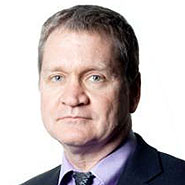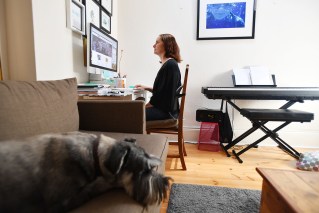Employers must create flexible workplaces for both genders


Getty
There’s a serious disconnect between the high-flown rhetoric about work and the reality of the labour market.
When it comes to the higher-skilled, there’s talk of fierce competition between employers to recruit and retain talent.
Among the less skilled, the young and those aged over 50, there is a struggle to find regular work amid the growth in part-time and casual work, plus structural changes in the economy.
• This man was paid for not working … for six years
• Seven deadly sins to avoid in job interviews
• Australia Day sickies: the staggering $62m cost
The bottom line is that many, many Australian workers have too little regular work, while others with full-time jobs are working too much.
In coming weeks, I will be writing more about so-called “insecure” work, which is being examined by an inquiry in Victoria.

Flexible working means allowing employees some control over when, where and how they worked. Photo: Getty
It’s important to recognise at the outset that getting a negotiated outcome mostly depends on whether an individual worker has some leverage at the bargaining table, whether individual or collectively through a union.
As a journalist, I’m reminded of massive structural change in my industry every time I see The Age‘s mothballed printing plant out near Melbourne airport (there’s another one in Sydney as well).
And I write as a 50-something worker who took voluntary redundancy after about 20 years at Fairfax Media, where I absolutely put in too many hours at work – late nights, early mornings and many Sundays – in the post-boozing era of journalism.
It was not so much a martyr complex but an impatience to get things done. Even in the digital media, journalism involves working with your hands as well as your head, with somebody having to find and write the stories.
Hence, a study released by the group Chief Executive Women struck a chord with me because, after only 30 years or so, I have seen the light about working long hours.
The study argued that Australian employers had to prepare for a future where flexible work was standard in any role – and that men were a critical part of the solution.
“Organisations that promote flexible models for both men and women will signal a culture that embraces different working styles and is outcome-oriented (rather than a face time culture),” it said.
“Such companies are more likely to make it work for everyone.”

A study showed women were willing to take a different route. Photo: Getty
The study, commissioned from management consultants Bain & Company, said that less than half of Australian employers have a workplace flexibility policy, and that those policies were not necessarily effective.
By flexible working, it meant allowing employees some control over when, where and how they worked, including part-time, working from home, setting their own hours and taking a leave of absence.
The study argued that women seeking flexible work were equally – if not more ambitious – than those who did not. They just were willing to take a different route.
It found that flexible work was not driving advocacy or confidence among male workers despite strong interests in doing it.
Male respondents cited a lack of senior support and a negative view held by their peers and management.
“My boss told me I wouldn’t be able to get promoted working part-time,” said one.
The study cited research by the Australian Human Rights Commission which found that 27 per cent of fathers and partners reported discrimination relating to parental leave and return to work, despite only taking short periods off.
Men were twice as likely as women to have their request for flexible work rejected, with one respondent being told that part-time work was traditionally only made to work for women.
That is, many employers have to change their mindset on flexible work and gender. But so do men.
Mark Skulley is a freelance journalist based in Melbourne. He was a reporter for The Australian Financial Review for almost 19 years, which included a decade covering national industrial relations and the world of work. View all of his columns here.









